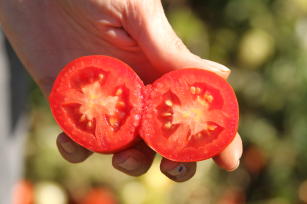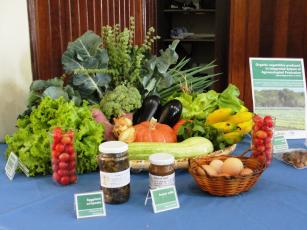Conservationist biological control in agroecological tomato cultivation systems
Conservationist biological control in agroecological tomato cultivation systems

Photo: CARVALHO, Henrique Martins Gianvecchio
The organic production of vegetables is an activity of major social and economic importance in Brazil's Distrito Federal, and it has grown about 30% larger every year, causing a higher demand for knowledge on the establishment of new crops. Tomato is one of the main cultivated vegetables in terms of economic importance, which is central to the management of organic vegetable plots due to countless related plant health problems. From an agroecological standpoint, environmental diversification is one of the components that can be managed to suppress insect pest populations. This project is expected to achieve enough scientific knowledge to better understand the role of environmental diversification on insects and to elaborate a proposal of environmental and crop management that minimizes insect damages to vegetables, with emphasis on tomato plants, for organic farmers in Distrito Federal. To reach such results, the project aims to: study the effect of the combinations of tomato monoculture and tomato polyculture on the strutucture of communities of insect predators and on the control of herbivore populations; study the relative importance of the pollen of different plant species as food resources for each insect predator; study pollen- and nectar-producing plants that can be food sources for natural enemies; study strategies to promote the increment of natural enemies in agroecosystems through the inclusion of functional biodiversity; establish a Reference Collection of Natural Enemies to facilitate future studies in the area of biological insect control.
Ecosystem: Cerrados Region
Status: Completed Start date: Sat Nov 01 00:00:00 GMT-03:00 2008 Conclusion date: Fri Apr 30 00:00:00 GMT-03:00 2010
Head Unit: Embrapa Vegetables
Project leader: Maria Alice de Medeiros
Contact: maria.alice@embrapa.br
Keywords: Coentro, Controle biológico, Sistema orgânico, Tomate, Traça do tomateiro

